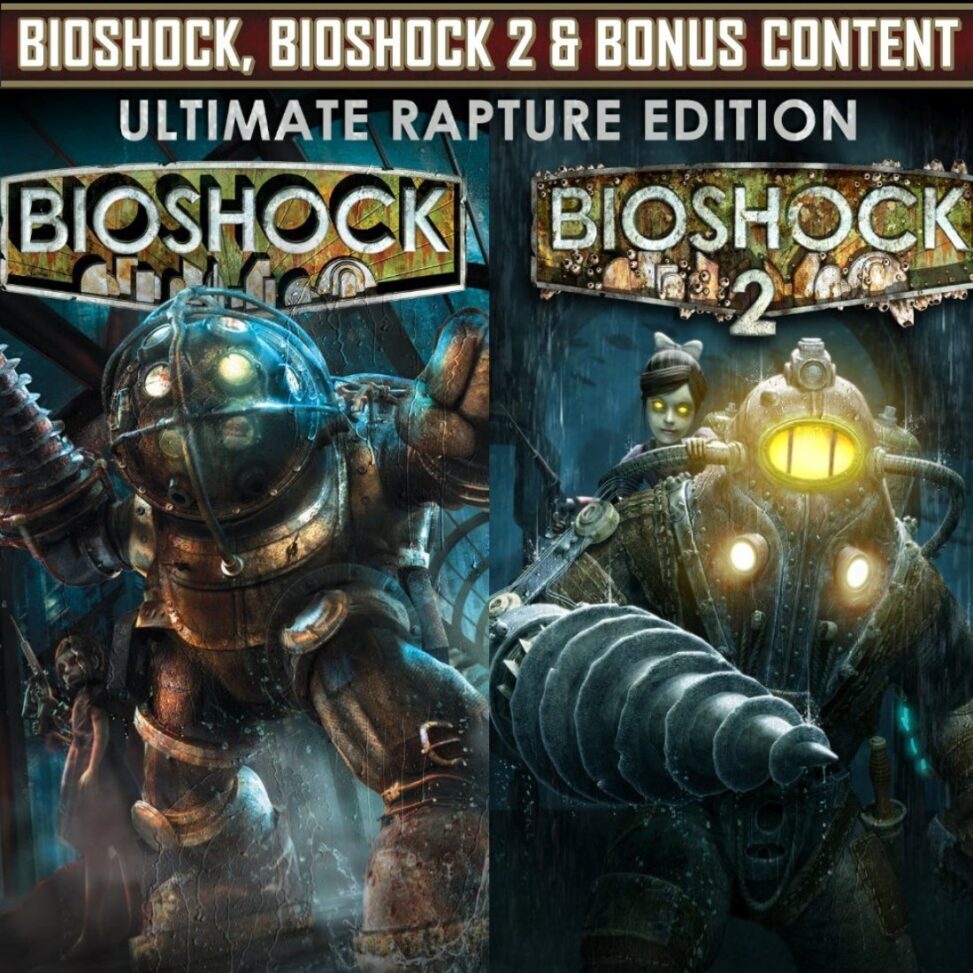The gaming industry is full of games that teach us something new or show us things we usually don’t see through the prism of our perception. The Bioshock series gives us that very idea, or rather, a lesson about whether choice is important or whether that choice has already been made for us, whether morality is necessary when everything around us is falling apart, what illusion really is, and how to portray the antagonist in the story in a way that touches our emotions just as much as the first part did. There are three games and several DLCs in the entire franchise, and I will only touch on the first two games, as they are very suitable for comparison in terms of how a monster or character went from being secondary to becoming the main character.
In the first part, players play as Jack, who at first glance seems like an ordinary person who survived a plane crash near a lighthouse and was brought to the city of Rapture. He gradually goes through trials and mysticism to find out what happened to the whole city and why it is in such a state of disrepair, going through manipulation and mind control The second part tells us the story of Delta, a monster called Big Daddy, a monster who, in the first part, protected little sisters who extracted the substance that destroyed the city. Only here the monster turns into a father looking for his daughter after his wife stole her and almost killed Delta himself. As a result, the player goes through other messages, such as what it means to be a father, what it means to be a monster, but have a human heart.
Jack as a character: even though we play as a human, we are actually controlling a nameless puppet who does whatever we tell him to do. The nameless main character only reinforces the idea that there is a choice of actions, but as the game progresses, it only becomes illusory in order to show us, or rather, punish us. Freedom of will in the game only emphasizes the philosophical criticism of objectivism and freedom of will in the game itself. As Hawking (2007) notes, the game “punishes the player for obedience,” showing that each of his actions was performed on command, symbolizing how people assimilate a system of control even when they believe they are acting freely. The main villain manipulated the hero all this time with the words “Would you kindly,” which is the most ingenious and at the same time the most subtle twist in the game itself and in life, because not everyone will understand that they are being manipulated by a simple word, although at the same time it is difficult for people who are asked to refuse such a word.
What can be said about Delta, since the hero of the second part is an old-model monster who was one of the enemies in the first part? But in the game, he is presented to us not only as a monster, but also as a loving father and a man who protects everyone around him, even though the entire city will soon be submerged along with all its inhabitants, who have turned into mutants. The game shows, not only through the actions of the hero, but also through the story, how a monster becomes a human being, even in the eyes of his wife, who did not recognize anyone in us. Unlike Jack, who personifies humanity enslaved by ideology, Delta personifies the return of personality through empathy. According to Aldred and Greenspan (2011), the sequel “turns the view of the first game upside down,” forcing players to see Rapture not as a place that arouses curiosity, but as a home desecrated by decay, where even monsters have an inner life. It can be said that the second part looks at the story from a marginal point of view, looking at the inhabitants of the entire city and how even monsters have more compassion than humans.
The transition from enemy to main character caught players off guard, as empathizing with the monster seemed very natural. We go through the entire journey with him, which provides a lot of food for thought on many things, from not judging a book by its cover to everyone being able to experience whatever they want. Unlike the hero of the first part, where the main thing was who you are and how to break out of the cycle of manipulation and become a person, with Delta we are already a person, we are a father, we have freedom, and our morals will constantly waver, but our goal to protect our daughter forces us to look at the world through different eyes, improving players’ understanding of empathy and broadening their views.
References and Sources:
Aldred, Jessica, and Brian Greenspan. 2011. “A Man Chooses, a Slave Obeys: BioShock and the Dystopian Logic of Convergence.” Game Studies 11(2).
Brock, Tom. 2018. “Roger Caillois and the Cybernetic Sociological Imagination: Rethinking the Social Game.” Games and Culture 13(2): 107–124.
Hocking, Clint. 2007. “Ludonarrative Dissonance in BioShock: The Problem of What the Game Is About.” Click Nothing Blog.
Pötzsch, Holger. 2017. “Select and Combine: Reading Games as Posthuman Texts.” Games and Culture 12(3): 257–278.


Provide Feedback